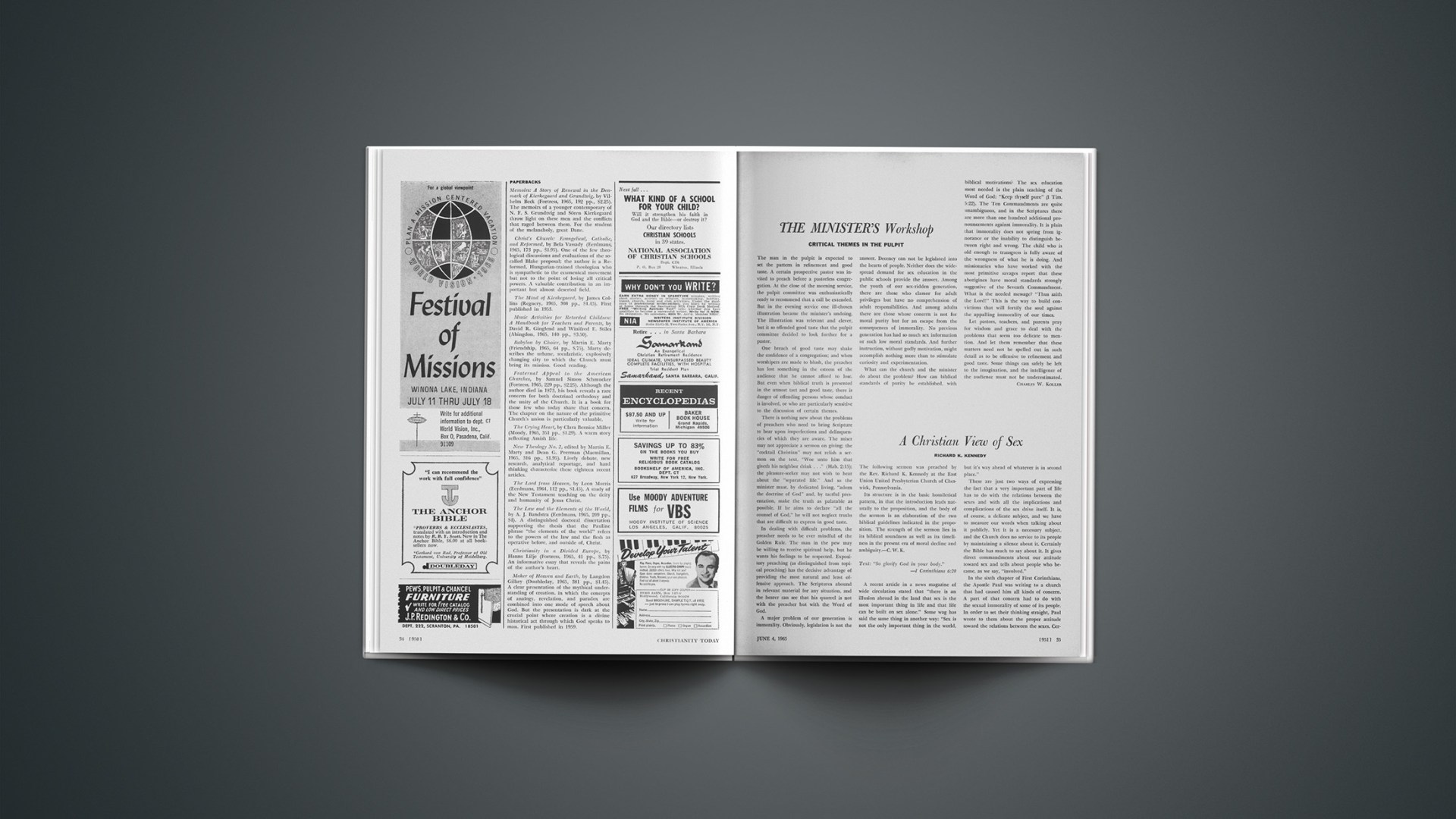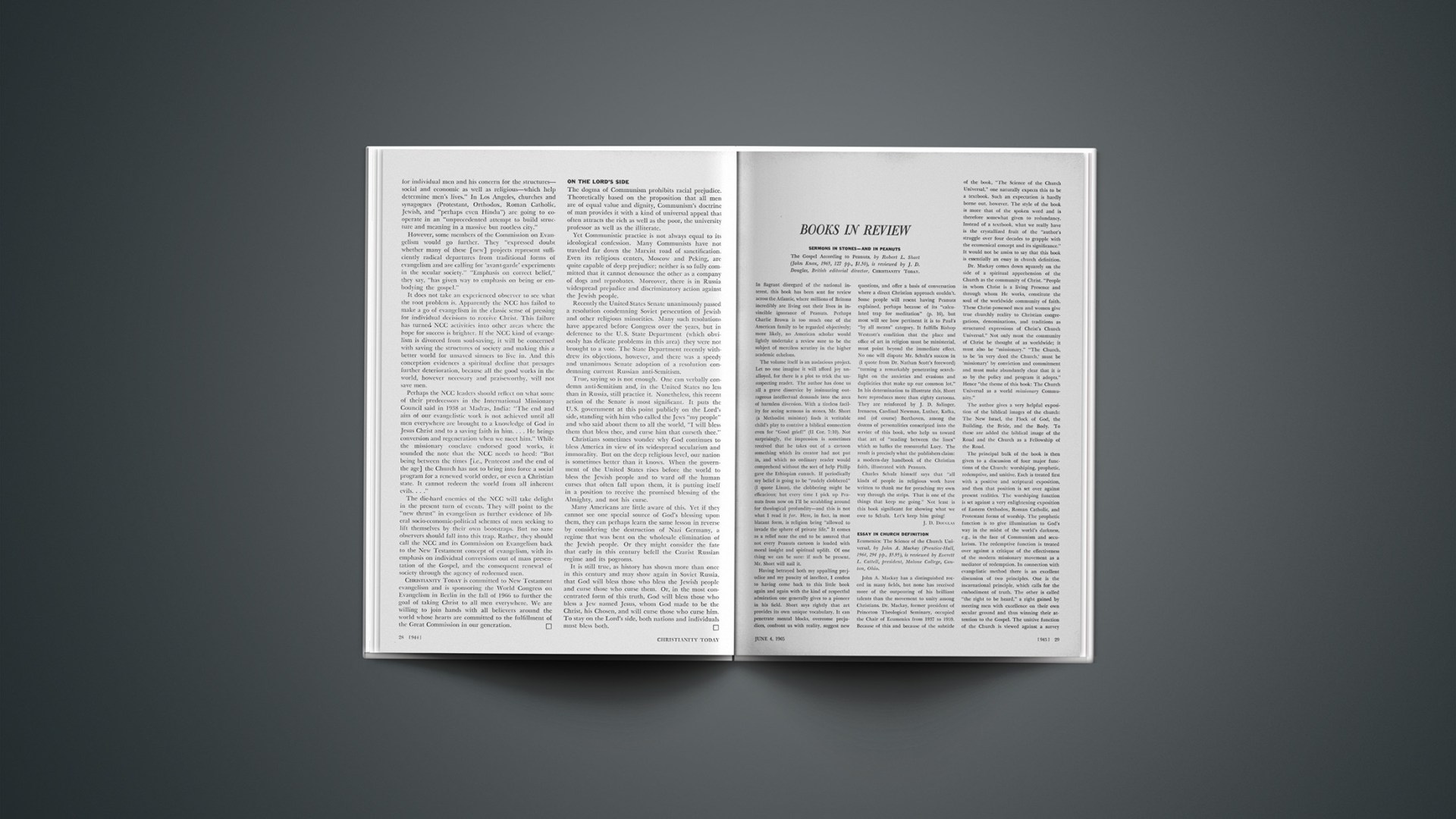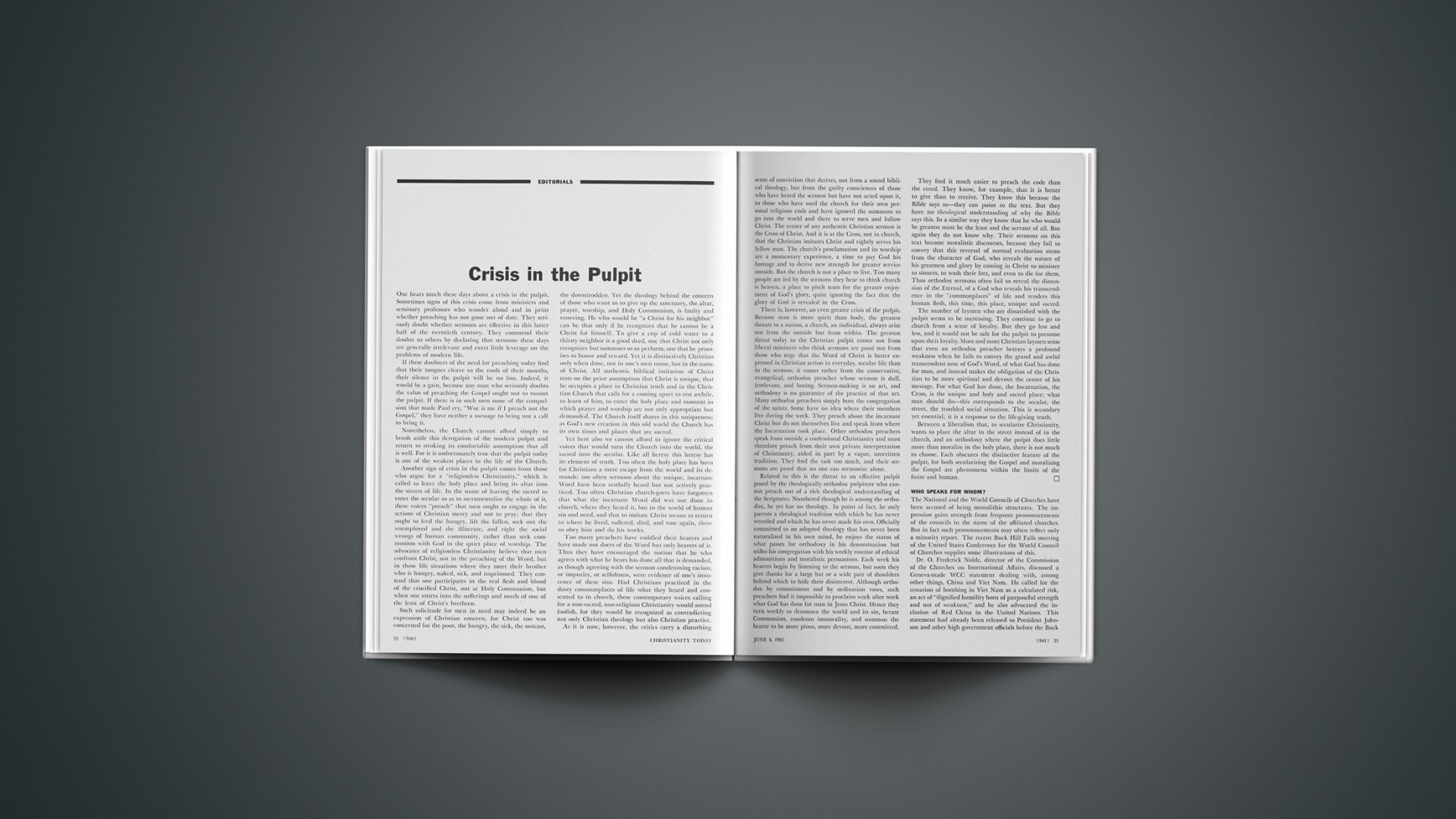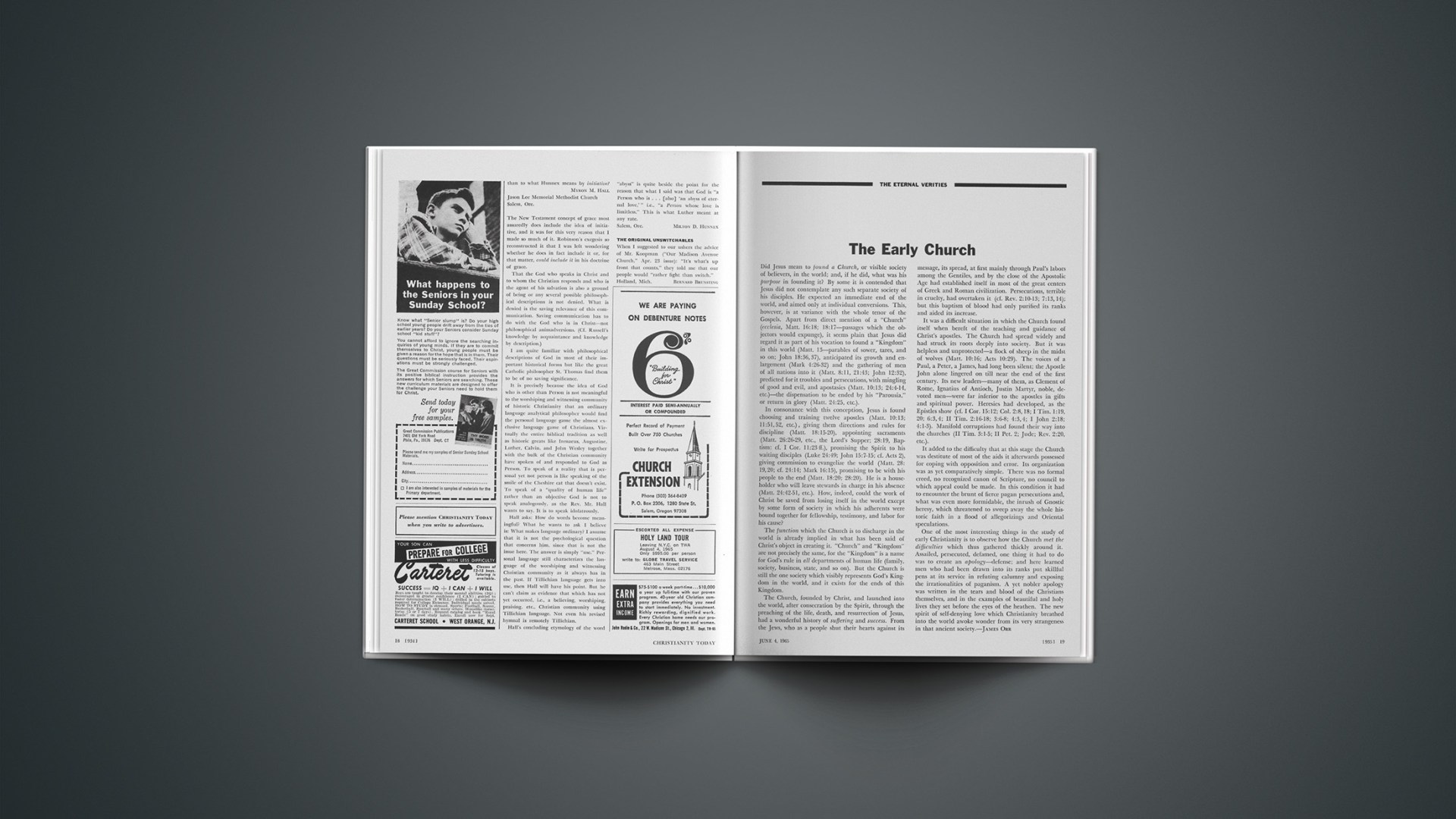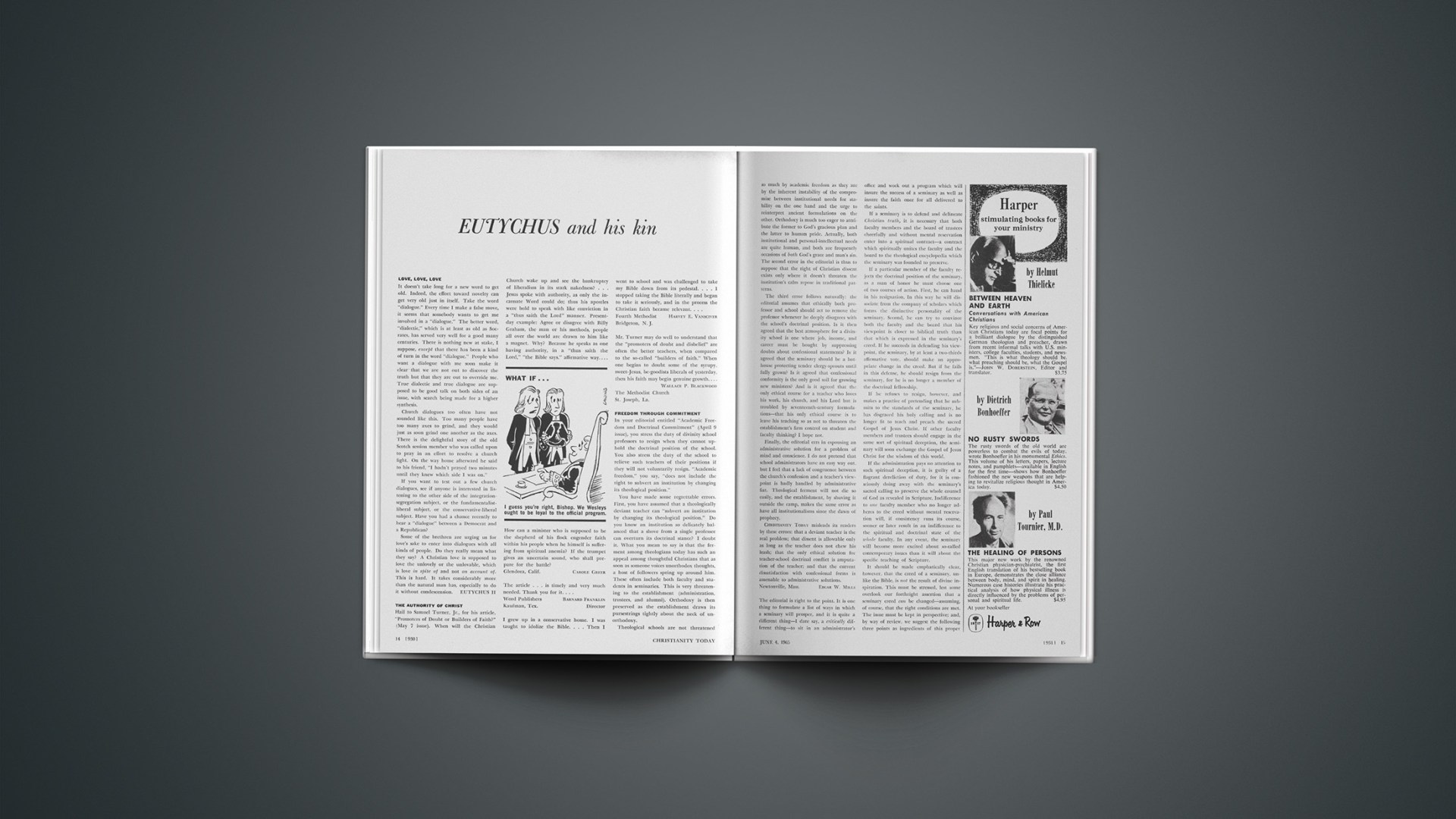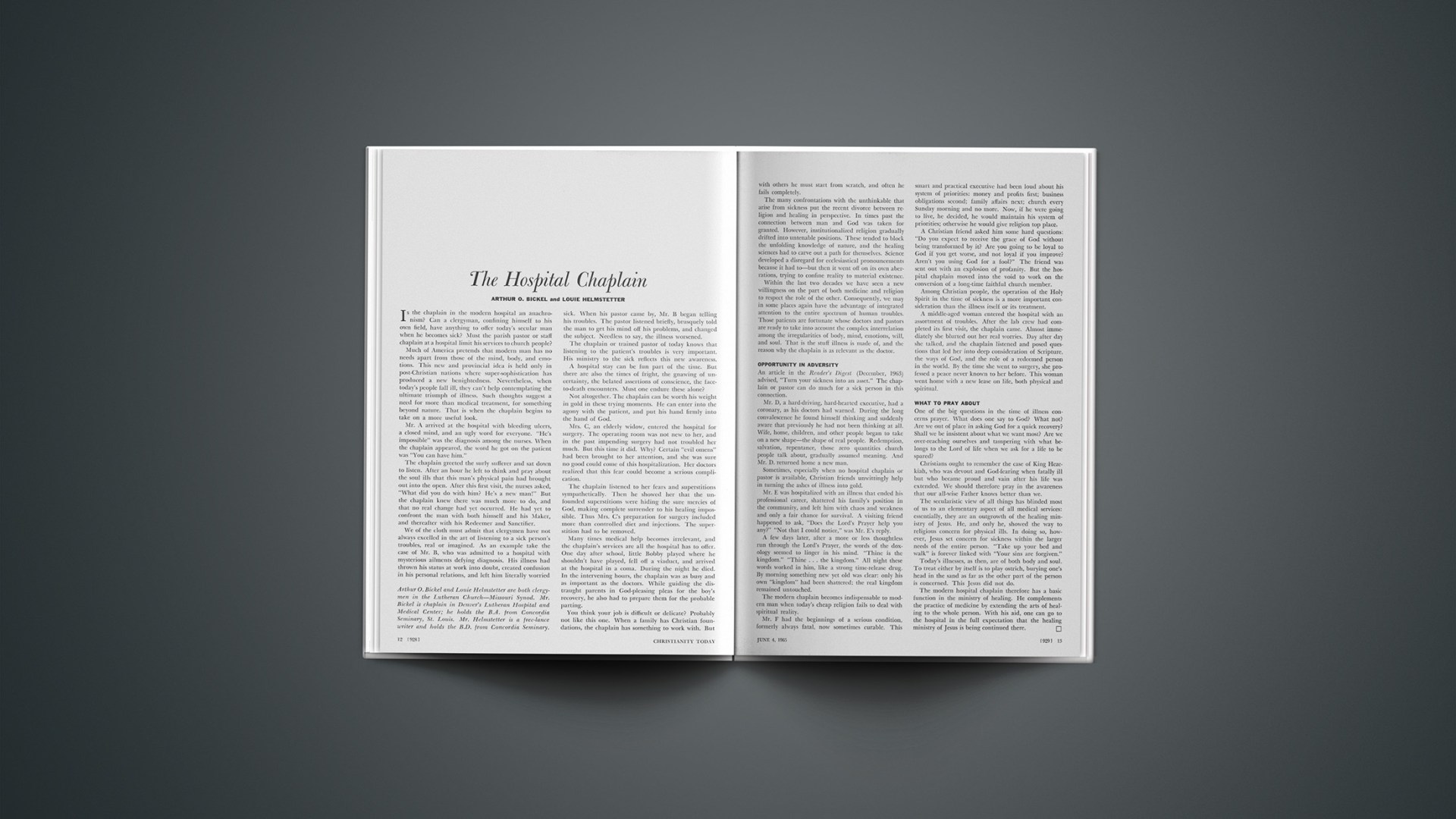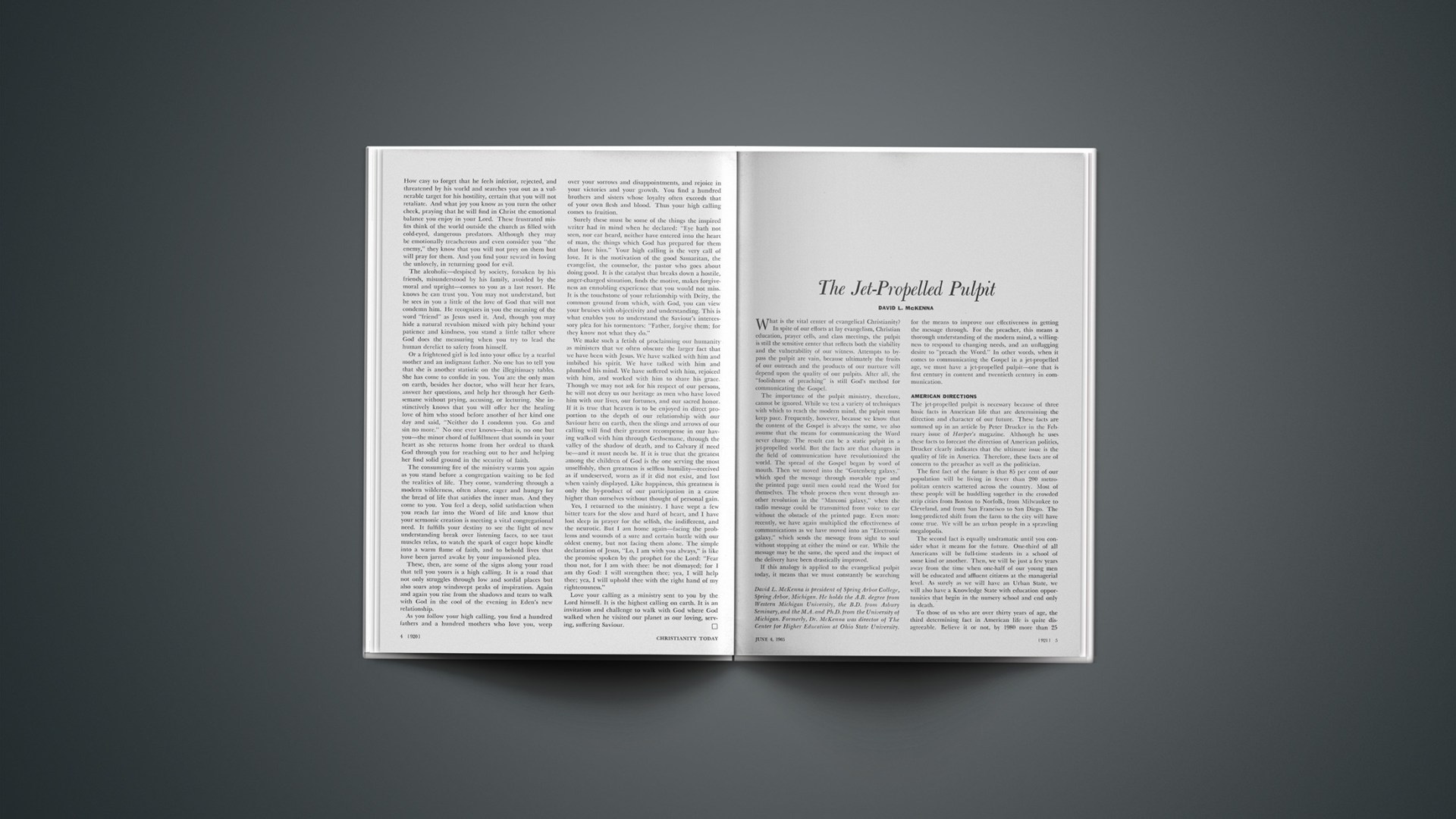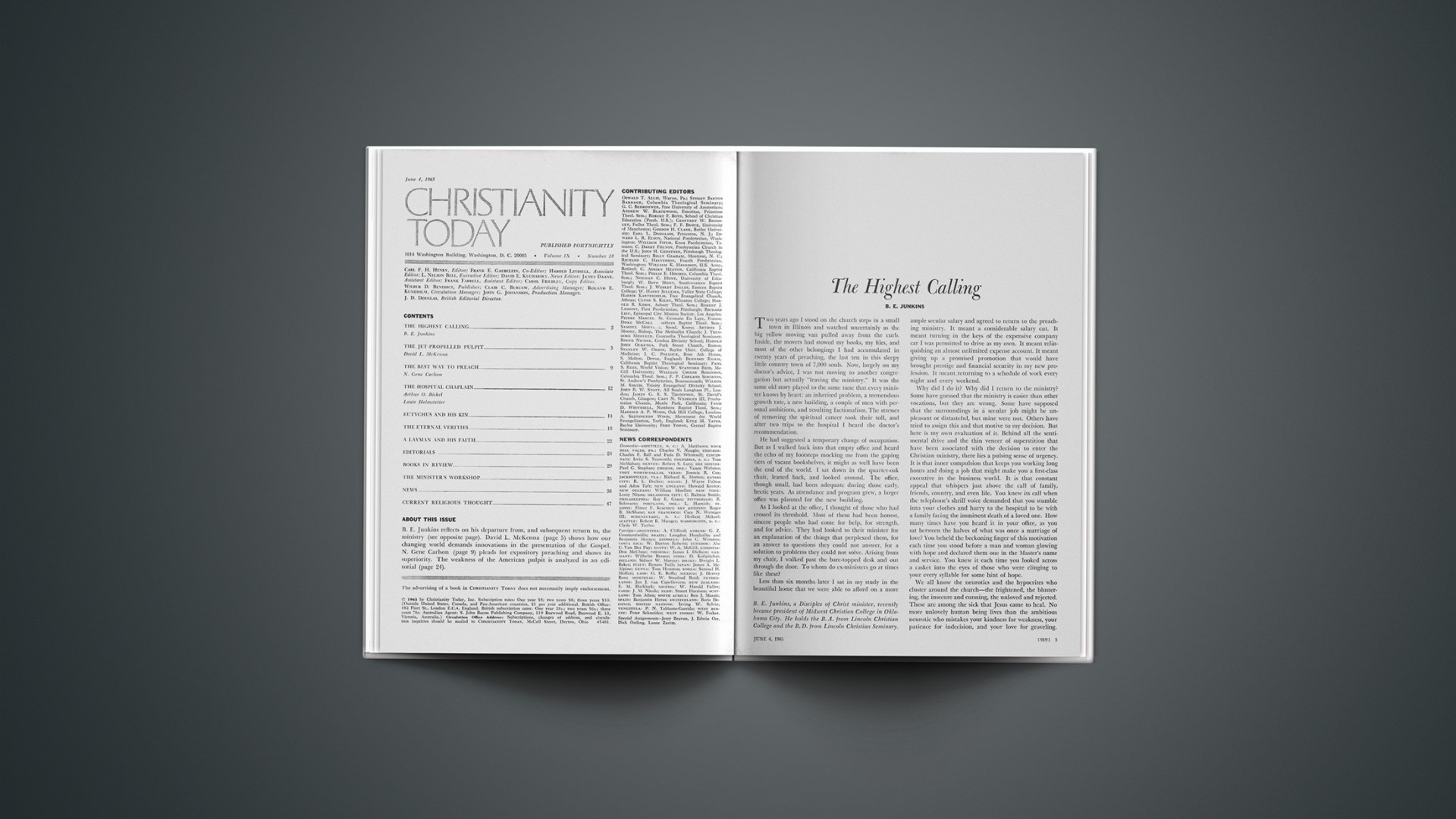The man in the pulpit is expected to set the pattern in refinement and good taste. A certain prospective pastor was invited to preach before a pastorless congregation. At the close of the morning service, the pulpit committee was enthusiastically ready to recommend that a call be extended. But in the evening service one ill-chosen illustration became the minister’s undoing. The illustration was relevant and clever, but it so offended good taste that the pulpit committee decided to look further for a pastor.
One breach of good taste may shake the confidence of a congregation; and when worshipers are made to blush, the preacher has lost something in the esteem of the audience that he cannot afford to lose. But even when biblical truth is presented in the utmost tact and good taste, there is danger of offending persons whose conduct is involved, or who are particularly sensitive to the discussion of certain themes.
There is nothing new about the problems of preachers who need to bring Scripture to bear upon imperfections and delinquencies of which they are aware. The miser may not appreciate a sermon on giving; the “cocktail Christian” may not relish a sermon on the text, “Woe unto him that giveth his neighbor drink …” (Hab. 2:15); the pleasure-seeker may not wish to hear about the “separated life.” And so the minister must, by dedicated living, “adorn the doctrine of God” and, by tactful presentation, make the truth as palatable as possible. If he aims to declare “all the counsel of God,” he will not neglect truths that are difficult to express in good taste.
In dealing with difficult problems, the preacher needs to be ever mindful of the Golden Rule. The man in the pew may be willing to receive spiritual help, but he wants his feelings to be respected. Expository preaching (as distinguished from topical preaching) has the decisive advantage of providing the most natural and least offensive approach. The Scriptures abound in relevant material for any situation, and the hearer can see that his quarrel is not with the preacher but with the Word of God.
A major problem of our generation is immorality. Obviously, legislation is not the answer. Decency can not be legislated into the hearts of people. Neither does the widespread demand for sex education in the public schools provide the answer. Among the youth of our sex-ridden generation, there are those who clamor for adult privileges but have no comprehension of adult responsibilities. And among adults there are those whose concern is not for moral purity but for an escape from the consequences of immorality. No previous generation has had so much sex information or such low moral standards. And further instruction, without godly motivation, might accomplish nothing more than to stimulate curiosity and experimentation.
What can the church and the minister do about the problem? How can biblical standards of purity be established, with biblical motivations? The sex education most needed is the plain teaching of the Word of God: “Keep thyself pure” (1 Tim. 5:22). The Ten Commandments are quite unambiguous, and in the Scriptures there are more than one hundred additional pronouncements against immorality. It is plain that immorality does not spring from ignorance or the inability to distinguish between right and wrong. The child who is old enough to transgress is fully aware of the wrongness of what he is doing. And missionaries who have worked with the most primitive savages report that these aborigines have moral standards strongly suggestive of the Seventh Commandment. What is the needed message? “Thus saith the Lord!” This is the way to build convictions that will fortify the soul against the appalling immorality of our times.
Let pastors, teachers, and parents pray for wisdom and grace to deal with the problems that seem too delicate to mention. And let them remember that these matters need not be spelled out in such detail as to be offensive to refinement and good taste. Some things can safely be left to the imagination, and the intelligence of the audience must not be underestimated.

